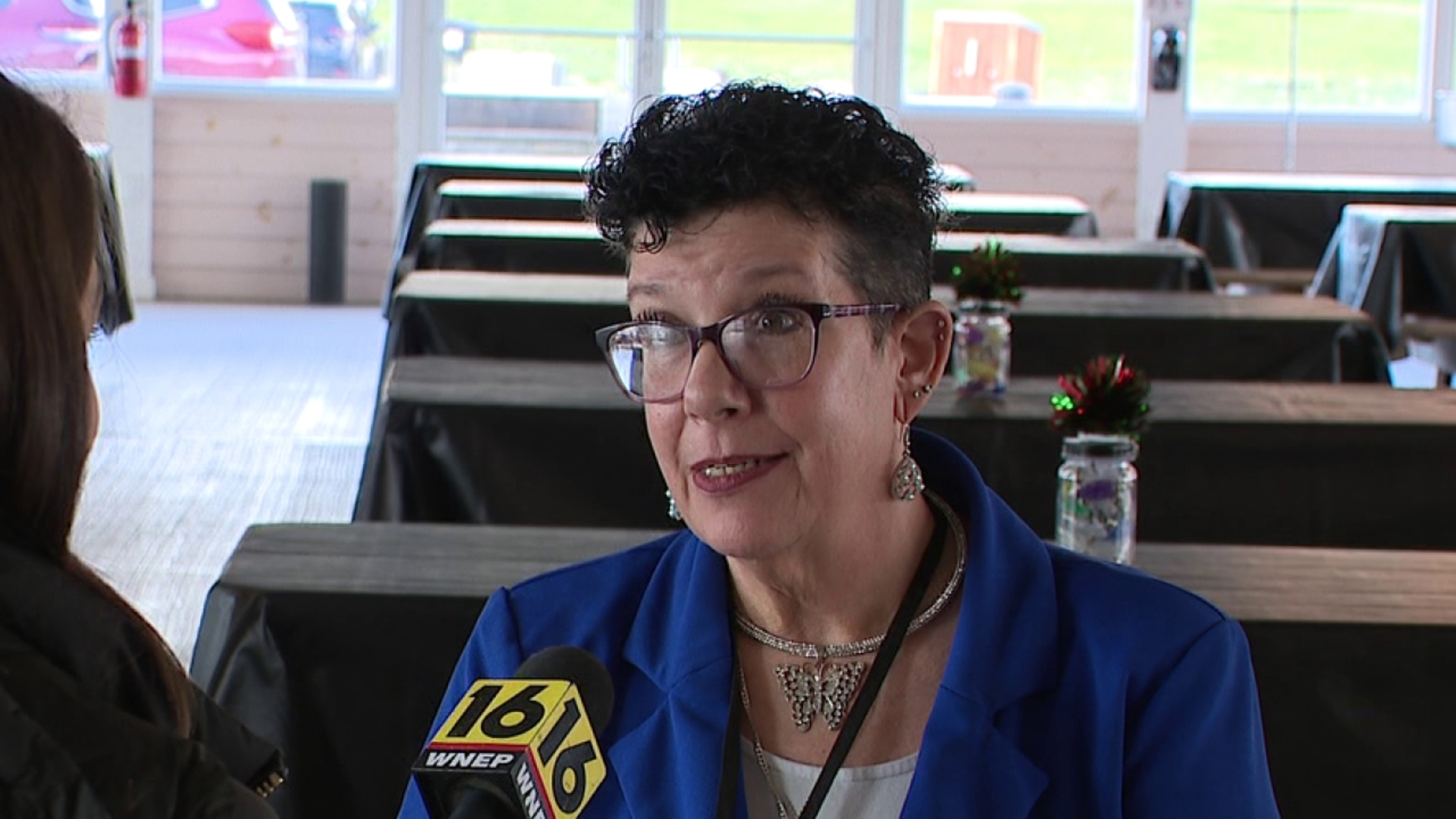WYOMING COUNTY, Pa. — It's a change of perspective in Wyoming County, as human trafficking survivor Kelley Alsobrook shared her story to hundreds of professionals from 10 different counties in Northeastern and Central Pennsylvania.
"If you have poverty, if you have troubled youth, if you have the internet, it is happening," said Alsobrook.
Alsobrook is an author, advocate, and survivor of human trafficking, domestic violence, and sexual assault. She says her childhood abuse and being a young, poor single mom made her an easy target for traffickers.
"He provided everything that I needed and everything that I was craving. That's how I was lured in. So I was in the life for about six years," said Alsobrook.
Alsobrook says the issue of human trafficking doesn't just mean prostitution, and it looks different than most people realize, "They're not going to just take you off the street. Not that that doesn't happen. But, most of the time everyone who is a victim of human trafficking, they know the person. That person has groomed them or is a family member."
District Attorney Joe Peters set up this training as part of the NEPA Task Force Against Human Trafficking. A problem, he says, is hidden in plain sight.
"This is the most heinous and worst crime I've ever seen. Because it destroys lives and it brings together all the other criminality. The drug trafficking, the rapes, the abuse, the money laundering, the gun trafficking. These gangs are horrible, and we're not going to stop until we put an end to it," said Joe Peters.
But it's not just up to those with a badge. Debra Holbrook is the Director of Forensic Nursing in Baltimore. She says medical professionals, like nurses and doctors can play a vital role in stopping human trafficking.
"You're taught as a human trafficking survivor to fear law enforcement or someone in uniform, but not medical care," said Debra Holbrook.
As our officials on every level try to learn the signs to help tackle the problem here at home.
"It is everywhere, and it is an everyone problem. Everybody can play a part in looking at the signs, learning what the signs are, getting educated. That can make a world of difference," said Alsobrook.

